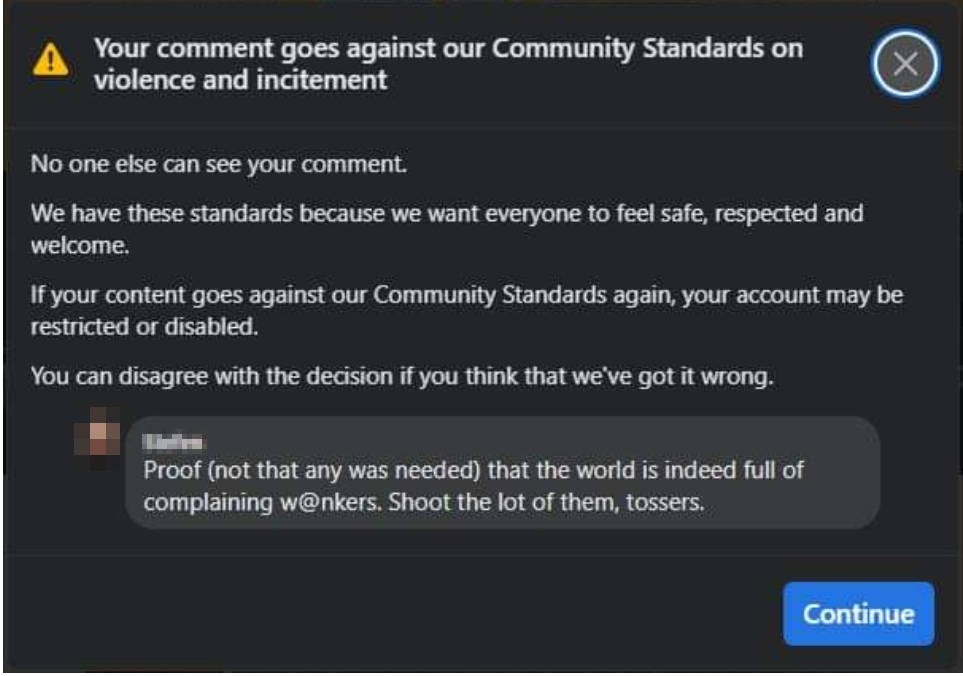Shortly before rage-quitting Facebook, an old school friend of mine went on an amusing but wayward rant about a woke moderation conspiracy – because his comment about shooting people got blocked.

British people say “should be shot” a lot. It’s a kind of absurdist humour; a ridiculous exaggeration. It’s not meant literally and no normally functioning British person would ever think it was.
It turns out, however, that there are a lot of people in the world who are not normally functioning British people – who knew, right?
It’s also well documented that if you sufficiently normalise violent concepts within a given channel, eventually someone does take it all too seriously and people do get shot. This happens even if it’s pretty clear to an outsider that the vast majority of content is not intended to be taken seriously. It’s not just violence either, it also happens with extreme ideologies such as white supremacy. Posting large volumes of material that could be plausibly denied as a joke or otherwise not serious has become a key propaganda tactic for extreme ideologies and terrorists – because it works.
That person who “just posts what they find funny” but so happens to bang out a constant stream of messaging might not be conscious that they’re acting as a propagandist for an extreme ideology, but that’s what they doing. Of course, despite and protest they make to the contrary, it’s entirely possible that they’re very aware of it.
Naturally violent and hateful topics do come up in general conversation and are the subject of innocent jokes, hyperbole, rants etc. This is perfectly normal and not usually unhealthy, Social Media companies have no desire to shut that down. This is not the hellscape imagined by The Dead Kennedys in California Uber Alles. The Tofu Eating Wokerati are not coming for you – and I should know.
The problem is that social media companies don’t want to get sued or face criminal charges because of the content people are posting. They’d much rather annoy people by blocking innocent comments than have to deal with the courts and the authorities.
To exacerbate things, it would be hideously expensive to employ real human moderators to scan all of the content. Instead the first line of their defence is a bunch of very paranoid algorithms that block first and ask questions later.
I once got a disparaging comment about the Hemel Hempstead Magic Roundabout blocked. I can only assume that Facebook thought Hemel Hempstead might be a person. The comment was reinstated without quibble when I complained.
It’s only when you do complain that you stand any chance of finding a real human.
Our world has changed, the way we communicate has changed. The UK has long had regulation (some of which is distinctly questionable) on what can be said in public, published and even transmitted via mail and telephone. The difference is that we’re now using micropublishing and telecommunication more than we ever did before – so we’re encountering regulation and the knock-on effects of regulation more.